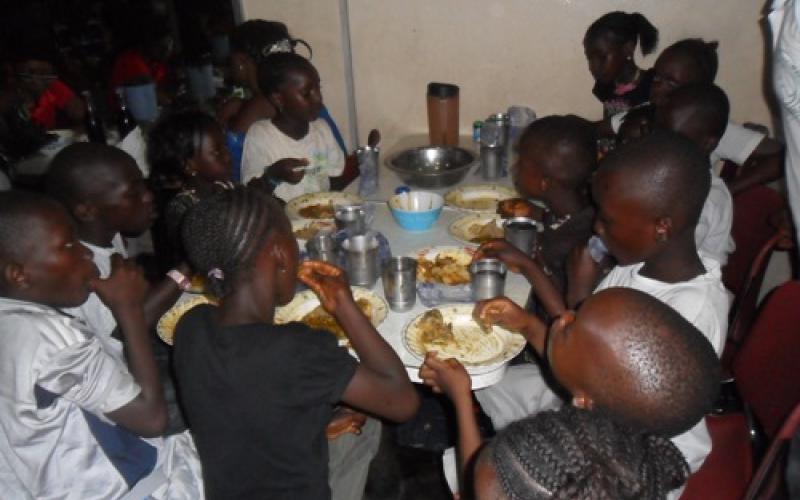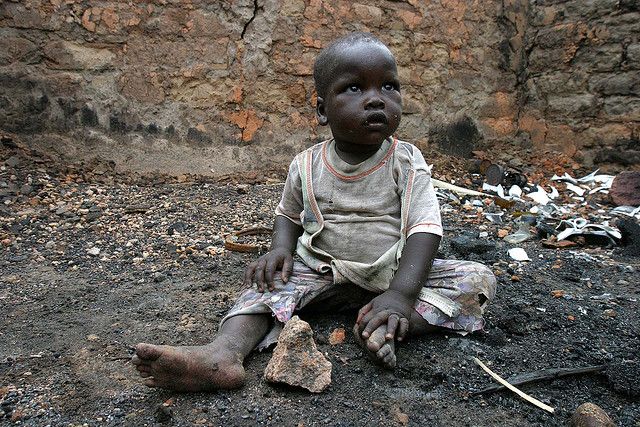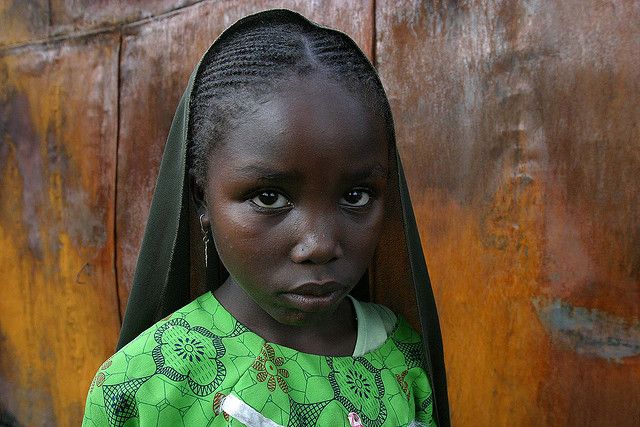
Imagine for a moment that you are the only surviving member of your family. Imagine the aftermath of witnessing the horrific deaths of many members of the community you grew up in; many of whom were the only faces you have known; many of whom were the only family you have in this world. Imagine the loneliness, fear and anxiety of not knowing what tomorrow holds, of not feeling cared for, accepted or even wanted by anyone. This is the reality of an Ebola orphan. UNICEF estimates that more than 16,000 children in Guinea, Liberia and Sierra Leone have lost one or both of their parents or primary caregivers, to the Ebola virus. Many of these children, defined by Article 1 of the Convention of the Rights of the Child as a person under the age of eighteen, find themselves housed with relatives or other community members concerned enough to take them in. In some cases, these individuals take on the extra responsibility of these children in addition to the responsibility of their own; some willing to take these children in with no promise of support, because of lack of funds required to feed, clothe and house these vulnerable children. However, with monetary support from aid agencies, donations of food, household items and mental health support services, more people in the community become willing to assist these children. These are the lucky few, the overwhelming majority are left to fend for themselves on the streets, as their neighbors are afraid of the very real possibility that a child might carry the dreaded virus.
Imagine the loneliness, fear and anxiety of not knowing what tomorrow holds, of not feeling cared for, accepted or even wanted by anyone. This is the reality of an Ebola orphan. UNICEF estimates that more than 16,000 children in Guinea, Liberia and Sierra Leone have lost one or both of their parents or primary caregivers, to the Ebola virus. Many of these children, defined by Article 1 of the Convention of the Rights of the Child as a person under the age of eighteen, find themselves housed with relatives or other community members concerned enough to take them in. In some cases, these individuals take on the extra responsibility of these children in addition to the responsibility of their own; some willing to take these children in with no promise of support, because of lack of funds required to feed, clothe and house these vulnerable children. However, with monetary support from aid agencies, donations of food, household items and mental health support services, more people in the community become willing to assist these children. These are the lucky few, the overwhelming majority are left to fend for themselves on the streets, as their neighbors are afraid of the very real possibility that a child might carry the dreaded virus.
So what happens to the children who end up on the streets? I hear you intangibly ask. Well, the "lucky" ones winds up, temporarily in institutions or group homes where they are quarantined for a number of weeks whilst awaiting Ebola test results or the onset of symptoms of the virus. Other children are less fortunate, winding up begging for food on the street or used as commodity, exploited for money, labor or sex.
The Ebola virus brought about the mass closure of schools in Sierra Leone, Liberia and Guinea, and with it a large exodus of children with basically nothing to keep them preoccupied, easily becoming vulnerable in their communities. Mass reports of increased teenage pregnancies followed the mass closure of schools and in Sierra Leone, for instance, the government blamed this on the outbreak of the Ebola epidemic.  In addition, upon the reopening of schools in April 2015, after nine months of closure, the Sierra Leone Government banned pregnant teenage girls from returning back to school for fear that they would set a bad example to other students. This decision in itself, created another problem for the ever increasing challenges faced by Ebola orphans, viz; stigmatization by the very community that should support and encourage them. No doubt, significant long term damaging consequences could follow from this decision to ban these girls from school, as no access to education could likely spell a future full of never ending poverty and missed opportunities. Adding further to the challenges encountered by Ebola orphans is the repudiation faced by the community, even when a child has been declared Ebola free by medical experts. Despite this, many families, even relatives of the child are reluctant to take them in. This leaves very few choices for these orphans.If not for the existence of aid agencies and support from international groups, religious organizations and a handful of caring general public, Ebola orphans have some glimmer of hope that they have not been left completely destitute. However, it is important to consider that the support system for these vulnerable children is strained and in need of constant assistance and monitoring to ensure the well being of these children in the long term. Being an orphan alone is a lot of pain, and suffering victimization from the society as an Ebola survivor even worsens the situation. While humanitarian agencies continue to find ways to curb the spread of the disease, governments of the countries most affected by Ebola should do more to support these agencies and create long-term care plans for Ebola survivors especially orphans. Pictures are licensed free to use and taken from Flickr.com
In addition, upon the reopening of schools in April 2015, after nine months of closure, the Sierra Leone Government banned pregnant teenage girls from returning back to school for fear that they would set a bad example to other students. This decision in itself, created another problem for the ever increasing challenges faced by Ebola orphans, viz; stigmatization by the very community that should support and encourage them. No doubt, significant long term damaging consequences could follow from this decision to ban these girls from school, as no access to education could likely spell a future full of never ending poverty and missed opportunities. Adding further to the challenges encountered by Ebola orphans is the repudiation faced by the community, even when a child has been declared Ebola free by medical experts. Despite this, many families, even relatives of the child are reluctant to take them in. This leaves very few choices for these orphans.If not for the existence of aid agencies and support from international groups, religious organizations and a handful of caring general public, Ebola orphans have some glimmer of hope that they have not been left completely destitute. However, it is important to consider that the support system for these vulnerable children is strained and in need of constant assistance and monitoring to ensure the well being of these children in the long term. Being an orphan alone is a lot of pain, and suffering victimization from the society as an Ebola survivor even worsens the situation. While humanitarian agencies continue to find ways to curb the spread of the disease, governments of the countries most affected by Ebola should do more to support these agencies and create long-term care plans for Ebola survivors especially orphans. Pictures are licensed free to use and taken from Flickr.com

